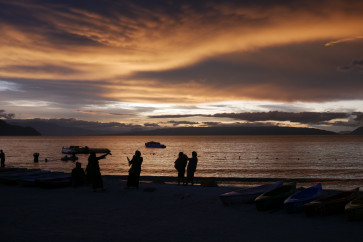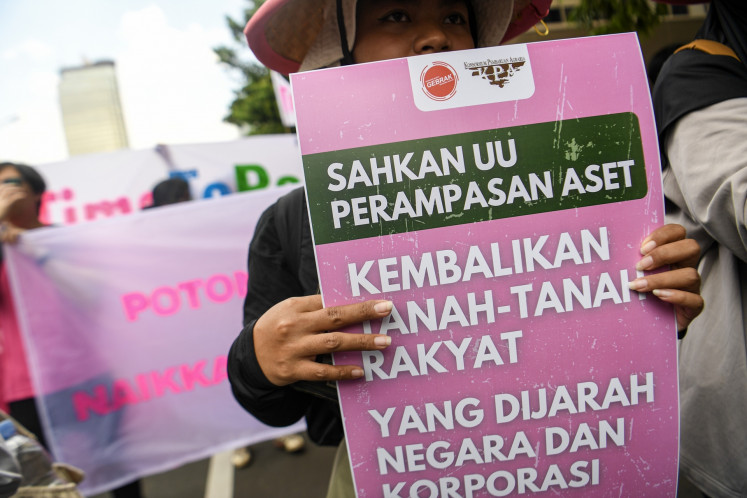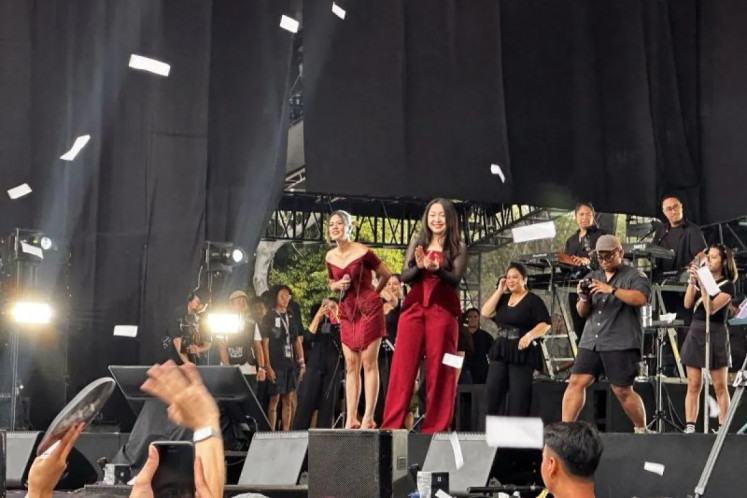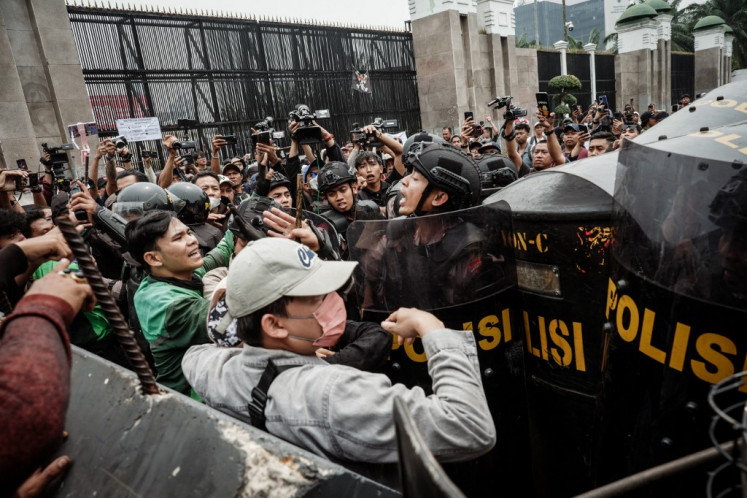Popular Reads
Top Results
Can't find what you're looking for?
View all search resultsPopular Reads
Top Results
Can't find what you're looking for?
View all search resultsFranz Xaver Augustin: Bridging cultures in three continents
JP/Anissa S
Change text size
Gift Premium Articles
to Anyone
JP/Anissa S. Febrina
During his years working mostly in foreign countries, Franz Xaver Augustin has learned one thing that is now the basis of his work: Not one single culture is above the others.
Currently serving as director of the Goethe Institute in Indonesia and regional director for Southeast Asia, Australia and New Zealand, Augustin believes that two-way communication works best when it comes to fostering cultural exchange.
“We don’t aim mainly at promoting German culture abroad. We never consider ourselves as a showcase for Germany,” said the 56-year-old.
“Of course, it is also part of our work that we have to screen films and invite artists from Germany. But what is much more important and promising is the cultural interaction with local intellectuals and artists to foster cultural processes.”
When his institution invited a German ensemble, for example, the most valuable element was the exchange between the European musicians and those from a local ensemble, as they played together, exchanged views on culture and the arts and created a co-production, he said.
“In whatever cultural things we do, the artists said that they have learned so much both ways,” he added.
Being in charge of 11 Goethe Institutes in a very heterogeneous region, Augustin knows well that his organization can contribute to the role of bridging cultures, not only German culture with a particular country, but also interregionally.
In a global world, people shouldn’t leave the global discourse “just to Mercedes and Toyota,” as he put it.
“The cultural and intellectual scenes can contribute a lot to what is going on in the world and can contribute very positively and constructively to this global discourse.
“We have found interesting ways of cooperation like holding a dance summit where several groups from the region met here and presented their productions. It fostered the exchange between Europe and the region and at the same time fostered interregional exchange,” he explained.
“It’s like building a network and bringing people who do not know each other and who should know each other together.”
Exposed to a wide variety of foreign cultures since his first Goethe Institute assignment in Spain, and then in India and Vietnam, Augustin always tries to step back a little from his own country’s cultural perspective and keep an open mind.
“What we don’t like to do is say ‘look at the beautiful things we have in Germany and follow our steps’,” he said. “In our case, we are also interested in representing our country in a good way, but we don’t follow the persuasive discourse.
“The best and the most natural way to gain credibility is to say that we are here to learn though dialogue and cultural exchange. That is the secret of the success of the Goethe Institute,” added the father of three, who spends most of his time traveling.
“It’s never good if a country sticks to its own traditions and customs, without opening its eyes to those
of others.”
The Goethe Institute itself has undergone several shifts in direction in its way of coping with the changes of the world.
Before the fall of the Berlin Wall, it mainly sought to help Germany regain international credibility after its Nazi past. After the end of the Cold War, there were internal questions of whether a cultural institution abroad was needed.
In fact, in the case of Indonesia, during the 1990s, Goethe served as a neutral place for intellectuals and activists to engage in dialogue on issues that could not be discussed elsewhere.
“This role has now got less and less since the reformasi,” Augustin said.
Yet, in addition to its cultural and educational programs, Goethe Institute still finds a way to keep nurturing the space for historical and political accounts rarely given by similar foreign cultural institutes.
Last month, it screened a movie on the 1965 massacre, an event still very much shrouded in the manipulation of facts, much like German’s own Nazi years up until recently.
“I’m very happy that Germany has found a way only through this very thorough dealing with the past,” he said. “We don’t like to stand up as teachers and say ‘look how good we are and how good we did it’, but it is an offer.
“I think it is necessary for a society to deal with its traumas; if not, they will come back to haunt you.
When there are skeletons in the cupboard, you can close the cupboard but they will still be there,” he added.
“I think there will never be a real new beginning as long as they haven’t really looked into the agonies of past. In Indonesia, it’s also necessary.”
Every country has its problems. And coming from a country with a bleak past, Augustin insisted that sharing begins with introspection.
“We know that the best campaign is to be self-critical and to be open to people and also to show your wounds,” Augustin pointed out.
Perhaps it was his own interest in history that led to him coming up with such programs for institutions, despite such topics not being “the priority of Goethe Institute.”
He is also planning another program on the end of European colonial rule in Southeast Asia, comparing the French in Indochina, the British in Malaysia, the Dutch in Indonesia and the Spanish in the Philippines.
Being able to work with cultural, historical and socio-political topics for the Goethe Institute is sort of like mixing business with pleasure, he said.
“My hobby and job are so very much mixed up that you cannot find a difference.”
However, the years he has spent abroad have also left him feeling he has no place to call home.
“It is mainly because of the situation of my parents who lost their home, I’m a bit homeless in a way,” Augustin said, explaining that his parents who were part of the German minority in the then Czechoslovakia who were deported after the war.
“I love Germany, the countryside and the culture. But I’m used to living in other countries. I have the privilege to work always in places I like,” he said. “For me, it was an amazing time to be in all these places and adjust to them.”
Adjusting means that he never stops learning new things and new cultures.
“It’s a great privilege of this job that you have to be a life-long learner.”










